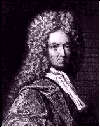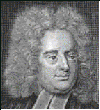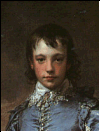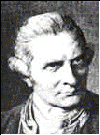1700 Sweden defeated Russia at battle of Narva
 Denmark, Poland & Russia declared war against Denmark, Poland & Russia declared war against
 Sweden Sweden
 American colony population about 275,000 American colony population about 275,000
 rococo style introduced into French architecture rococo style introduced into French architecture
 Kabuki Theater, Japan Kabuki Theater, Japan
 commode became popular furniture piece commode became popular furniture piece
 Francisco Romero became first famous Spanish Francisco Romero became first famous Spanish
 bullfighter bullfighter
 clarinet was invented by Johann C. Denner clarinet was invented by Johann C. Denner
1701 War of Spanish Succession begins
 William Kidd hung for piracy William Kidd hung for piracy
 Yale University established
1702 serfdom abolished in Denmark Yale University established
1702 serfdom abolished in Denmark
1703 John Wesley born
 Buckingham Palace rebuilt Buckingham Palace rebuilt
 St.Petersburg founded St.Petersburg founded
1704 French & Indian massacre of Derrfield, Conn.
 English took Gibraltar English took Gibraltar
 Daniel Defoe began newspaper "The Review" from Daniel Defoe began newspaper "The Review" from
 prison prison
1705 Halley accurately predicted comet's return in 1758
 English navy occupied Barcelona English navy occupied Barcelona
1706 Benjamin Franklin born
1707 England & Scotland became Great Britain
 Billiards introduced to Berlin Billiards introduced to Berlin
 last eruption of Mt Fujiyama last eruption of Mt Fujiyama
1708 Charles XII invaded Ukraine
 British captured island of Minorca from Spain British captured island of Minorca from Spain
1709 peace negotiations at The Hague
 invention of the piano by Bartolommeo Cristofori invention of the piano by Bartolommeo Cristofori
 1st Russian prisoners sent to Siberia 1st Russian prisoners sent to Siberia
1710 3-color printing invented
 British seized Acadia (Nova Scotia) from French British seized Acadia (Nova Scotia) from French
1711 Russia & Turkey at war
 clarinet used for 1st time in orchestra clarinet used for 1st time in orchestra
 John Shore invented the tuning fork John Shore invented the tuning fork
 races at Ascot established races at Ascot established
 Mobile was founded Mobile was founded
1712 last execution of witches in England
 St.Petersburg became capital of Russia St.Petersburg became capital of Russia
 slave revolts in New York slave revolts in New York
 Carolina was split into north & south colonies Carolina was split into north & south colonies
1713 pigtails introduced in Prussian Army
1714 George I, king of England
 tea introduced to America tea introduced to America
 D.G.Fahrenheit constructs mercury thermometer D.G.Fahrenheit constructs mercury thermometer
 with scale with scale
1715 Louis XV, king of France
 vaudevilles became popular in Paris vaudevilles became popular in Paris
 1st Liverpool dock built 1st Liverpool dock built
1716 Yoshimune became Shogun of Japan
1717 Mongols occupied Lhasa
 Handel's "Water Music" 1st given on the Thames Handel's "Water Music" 1st given on the Thames
 River River
 John Law's Mississippi Co. held monopoly of trade John Law's Mississippi Co. held monopoly of trade
 with Louisiana with Louisiana
 Inoculations of smallpox introduced in England Inoculations of smallpox introduced in England
 school attendence in Prussia made compulsory school attendence in Prussia made compulsory
1718 England declares war on Spain
 William Penn dies William Penn dies
 Founding of New Orleans Founding of New Orleans
 founding of San Antonio founding of San Antonio
 Blackbeard, Edward Teach, pirate killed Blackbeard, Edward Teach, pirate killed
1719 France declares war on Spain
 Ireland declared inseparable from Great Britain Ireland declared inseparable from Great Britain
 Liechtenstein becomes independent principality Liechtenstein becomes independent principality
 Mohammed Shah becomes Great Mogul Mohammed Shah becomes Great Mogul
 Daniel Defoe "Robinson Crusoe" Daniel Defoe "Robinson Crusoe"
1720 Tibet becomes Chinese protectorate
 wallpaper becomes fashionable in England wallpaper becomes fashionable in England
1721 Swiss immigrants introduce rifles into America
 Great War ends, Denmark, Poland & Russia Great War ends, Denmark, Poland & Russia
 victorious victorious
1722 Shih Tsung & Yung Cheng dynasty flourishes
 Daniel Defoe "Moll Flanders" Daniel Defoe "Moll Flanders"
 British Parliment forbids reporting of debates British Parliment forbids reporting of debates
1723 "T'u Shu Chi Ch'eng" Chinese encyclopedia
 Sir Christopher Wren dies Sir Christopher Wren dies
 first school for Native Americans founded first school for Native Americans founded
 in Williamsburg in Williamsburg
 Duty on tea reduced Duty on tea reduced
1724 gin drinking popular in Britain
1725 Spanish Steps, Rome, completed
 St.Petersburg Academy of Science is founded St.Petersburg Academy of Science is founded
 Casanova, born Casanova, born
1726 Jonathan Swift "Gulliver's Travels"
 Stephen Hale measures blood pressure Stephen Hale measures blood pressure
 1st circulating library in Edinburgh 1st circulating library in Edinburgh
1727 George II, king of England
 England 1st uses Hessian mercenaries England 1st uses Hessian mercenaries
 Thomas Gainsborough born Thomas Gainsborough born
 Sir Isaac Newton dies Sir Isaac Newton dies
 Quakers demand end to slavery Quakers demand end to slavery
1728 James Bradley discovers aberration of light of
 fixed stars fixed stars
 James Cook born James Cook born
 Vitus Bering discovers Bering Strait Vitus Bering discovers Bering Strait
1729 Portugal loses Mombasa to Arabs
 Emperor Yung Cheng prohibits opium smoking Emperor Yung Cheng prohibits opium smoking
 in China in China
1730 Mahmoud I, sultan of Turkey
 Christian VI, king of Denmark Christian VI, king of Denmark
1731 Building of State House in Philadelphia, later
 known as Independence Hall known as Independence Hall
 10 Downing Street built 10 Downing Street built
 quadrant invented for use at sea quadrant invented for use at sea
1732 George Washington born
 James Oglethorpe gets charter to form colony James Oglethorpe gets charter to form colony
 in Georgia in Georgia
 Benjamin Franklin "Poor Richard's Almanac" Benjamin Franklin "Poor Richard's Almanac"
 Trevi Fountain was designed by Nicola Salvi Trevi Fountain was designed by Nicola Salvi
 Ninepins played in New York for 1st time Ninepins played in New York for 1st time
1733 J.S.Bach: short version of Mass in B minor
1734 Koran translated into English
1735 John Adams born, 2nd US President
 Paul Revere born, US patriot Paul Revere born, US patriot
1736 Chi-en Lung, emperor of China
 Patrick Henry born, US patriot Patrick Henry born, US patriot
 English statutes against witchcraft repealed English statutes against witchcraft repealed
 Claudius Aymand performs 1st successful Claudius Aymand performs 1st successful
 appendectomy appendectomy
 "India rubber" comes to Britain "India rubber" comes to Britain
1737 Vincent de Paul canonized
1738 J.S.Bach: Mass in B minor (complete version)
 Joseph Guillotin born Joseph Guillotin born
 1st cuckoo clocks in Black Forest area 1st cuckoo clocks in Black Forest area
 excavation of Herculameum begins excavation of Herculameum begins
1739 John Winthrop IV: "Notes on Sunspots"
 John Wesley founds the Methodist religious John Wesley founds the Methodist religious
 movement movement
1740 Frederick II, king of Prussia
 Frederick II introduces freedoms of worship & press Frederick II introduces freedoms of worship & press
1741 Handel: "The Messiah"
 Antonio Vivaldi dies Antonio Vivaldi dies
1742 canal to link Elbe & Havel begun
 Anders Celsius invented the Celsius scale for Anders Celsius invented the Celsius scale for
 temperature temperature
 Benjamin Franklin invents the cast iron "Franklin Benjamin Franklin invents the cast iron "Franklin
 Stove" Stove"
1743 Thomas Jefferson born
 Jean Paul Marat born Jean Paul Marat born
 first permanent bullring built in Madrid first permanent bullring built in Madrid
1744 eruption of Mt.Cotopaxi, S.America
 1st recorded cricket match 1st recorded cricket match
1745 British take Louisburg, Canada
 Ishege, Shogun of Japan Ishege, Shogun of Japan
 quadrille becomes fashionable dance in France quadrille becomes fashionable dance in France
1746 Francisco de Goya born
 Jean-Eteinne Guettard draws 1st geological map Jean-Eteinne Guettard draws 1st geological map
 of France of France
 wearing of tartans forbidden in Great Britian wearing of tartans forbidden in Great Britian
1747 John Paul Jones, Am. naval officer, born
 national library founded in Warsaw national library founded in Warsaw
1748 Bach: "Die Kunst der Fuge"
 John Fothergill describes dyptheria John Fothergill describes dyptheria
1749 Halifax is founded as a fortress
 Giaccobbo Rodriguez Pereire invents sign language Giaccobbo Rodriguez Pereire invents sign language
 Henry Fielding: "Tom Jones" Henry Fielding: "Tom Jones"
|

George Frideric Handel was one of the greatest composers of the baroque period.

Daniel Defoe was an English writer of social criticism, satire, and novels.

Jonathan Swift is most famous as the author of Gulliver's Travels.

Thomas Gainsborough was one of the most accomplished English painters of the 18th century, excelling both in landscapes and portraits.

James Cook, the greatest explorer of the 18th century, is known for his voyages to the Pacific Ocean and his application of scientific methods to exploration and to cartography.

Johann Sebastian Bach, one of the greatest composers in Western musical history, created masterpieces of choral and instrumental music, both sacred and secular.

The Trevi Fountain in Rome was erected as an imposing entranceway at the point where water from an ancient aqueduct reaches the city.

Antonio Vivaldi was a major figure in Baroque music and exercised a considerable influence on the development of the concerto.
|








